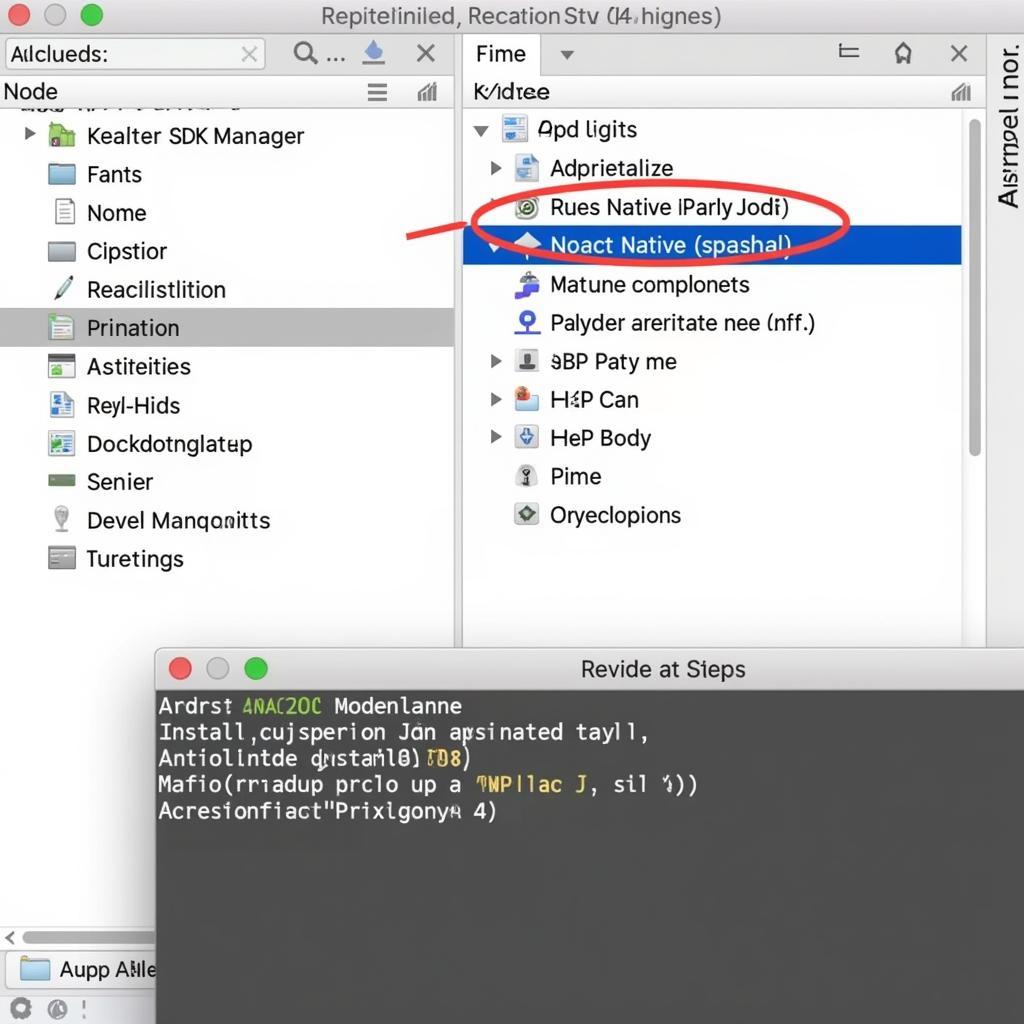Building your React Native project for Android and generating an APK file is a crucial step in deploying your app to the Google Play Store or distributing it directly to users. This guide will walk you through the entire process, from setting up your environment to optimizing your APK for release.
Preparing Your React Native Project for Android APK Generation
Before you can build your APK, ensure your development environment is correctly configured. This includes having Node.js, npm (or yarn), Java Development Kit (JDK), and Android Studio installed. You’ll also need to set up the Android SDK and emulators within Android Studio.  Setting up React Native for Android Development
Setting up React Native for Android Development
After setting up, navigate to your project’s root directory in the terminal and install the necessary dependencies using npm install or yarn install. A common issue developers face is mismatched versions of dependencies. Double-check your package.json to ensure compatibility.
Generating the Android APK File in React Native
There are two main methods to generate your APK: using the React Native CLI and using Android Studio.
Using the React Native CLI
The simplest way to build an APK is through the command line. Navigate to your project’s root directory and execute the following command:
npx react-native run-android --variant=releaseThis command will generate a release APK in the android/app/build/outputs/apk/release directory. This APK is signed with a debug keystore, which is unsuitable for production release.
Using Android Studio
Building with Android Studio offers more control over the build process and allows for signing with a production keystore. Open your project’s android folder in Android Studio. Select “Build” from the menu bar, then choose “Generate Signed Bundle / APK.” Select “APK” and click “Next.” You will be prompted to select your keystore file. If you don’t have one, you can create a new one. After selecting or creating your keystore, choose your desired build variants (release is recommended for production) and click “Finish.”
Optimizing Your React Native Android APK
To reduce the size of your APK and improve performance, consider using ProGuard to minify and obfuscate your code. Enable ProGuard in your app/build.gradle file by setting minifyEnabled to true within the release build type. Remember, improper ProGuard rules can lead to app crashes. Test thoroughly after enabling ProGuard.
Another optimization technique involves using different APK splits based on CPU architecture (ABI) or screen density. This allows users to download only the necessary resources, reducing download size and installation time. build release apk android studio
Troubleshooting Common APK Build Issues
- Keystore Errors: Double-check your keystore path, password, alias, and alias password.
- Dependency Conflicts: Run
./gradlew app:dependenciesto identify conflicting dependencies. - Build Failures: Carefully examine the build logs in the console for specific error messages.
Conclusion
Building a React Native Android APK is a straightforward process once you understand the key steps and configurations. By following this guide and optimizing your APK, you can ensure a smooth and efficient deployment process for your app. Remember to always test your release APK thoroughly before distributing it.
Expert Insight: John Smith, Senior Mobile Developer at AppDev Solutions, advises, “Always build your release APK with a production keystore and test it extensively on various devices before publishing. This ensures a stable and secure app for your users.”
Another Expert: Maria Garcia, Lead React Native Developer at MobileFirst, adds, “Optimizing your APK size is crucial for user experience. Employing tools like ProGuard and splitting your APK can significantly improve download and installation times.”
If you need any assistance, please contact us at Phone Number: 0977693168, Email: [email protected] Or visit our address: 219 Đồng Đăng, Việt Hưng, Hạ Long, Quảng Ninh 200000, Vietnam. We have a 24/7 customer support team.